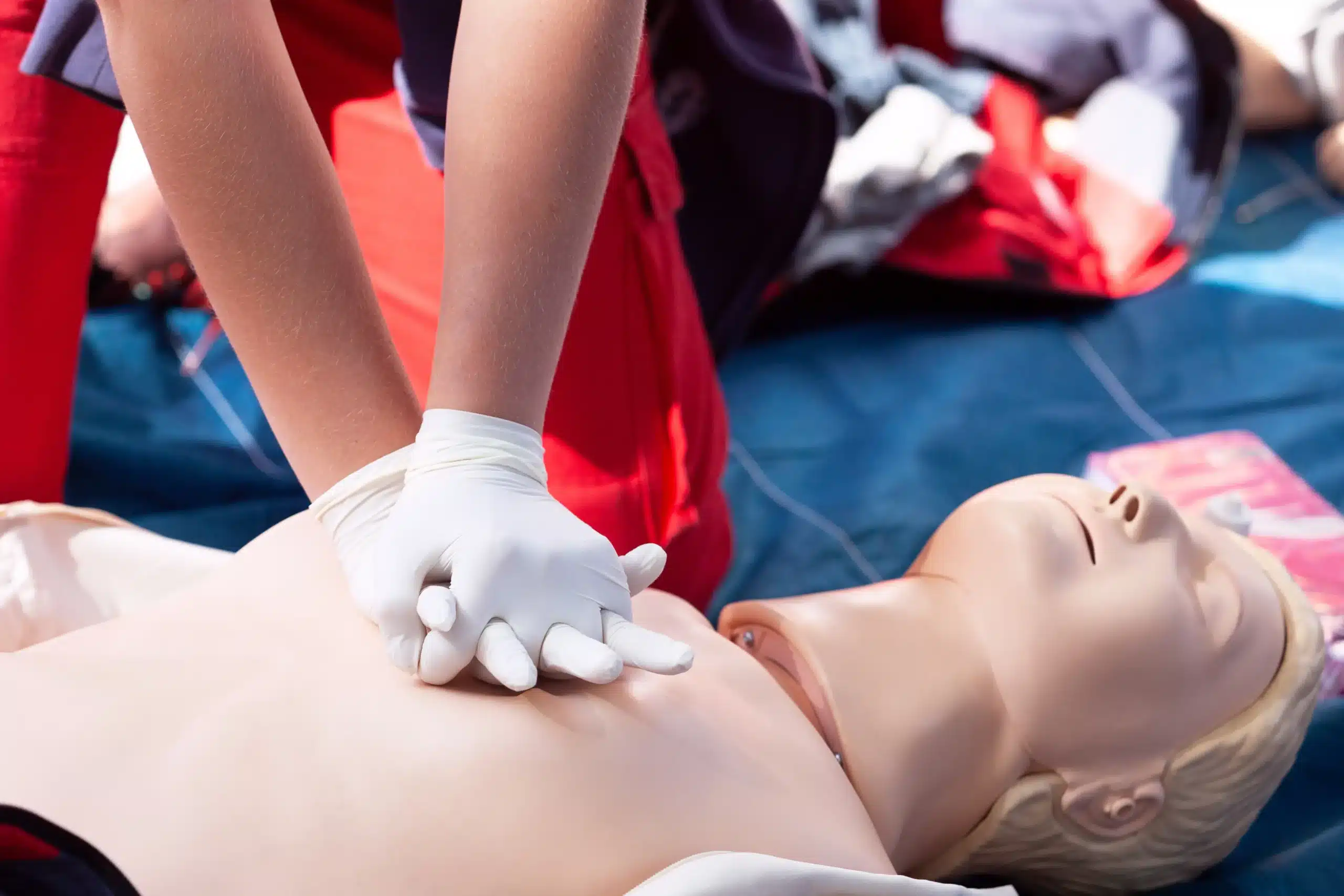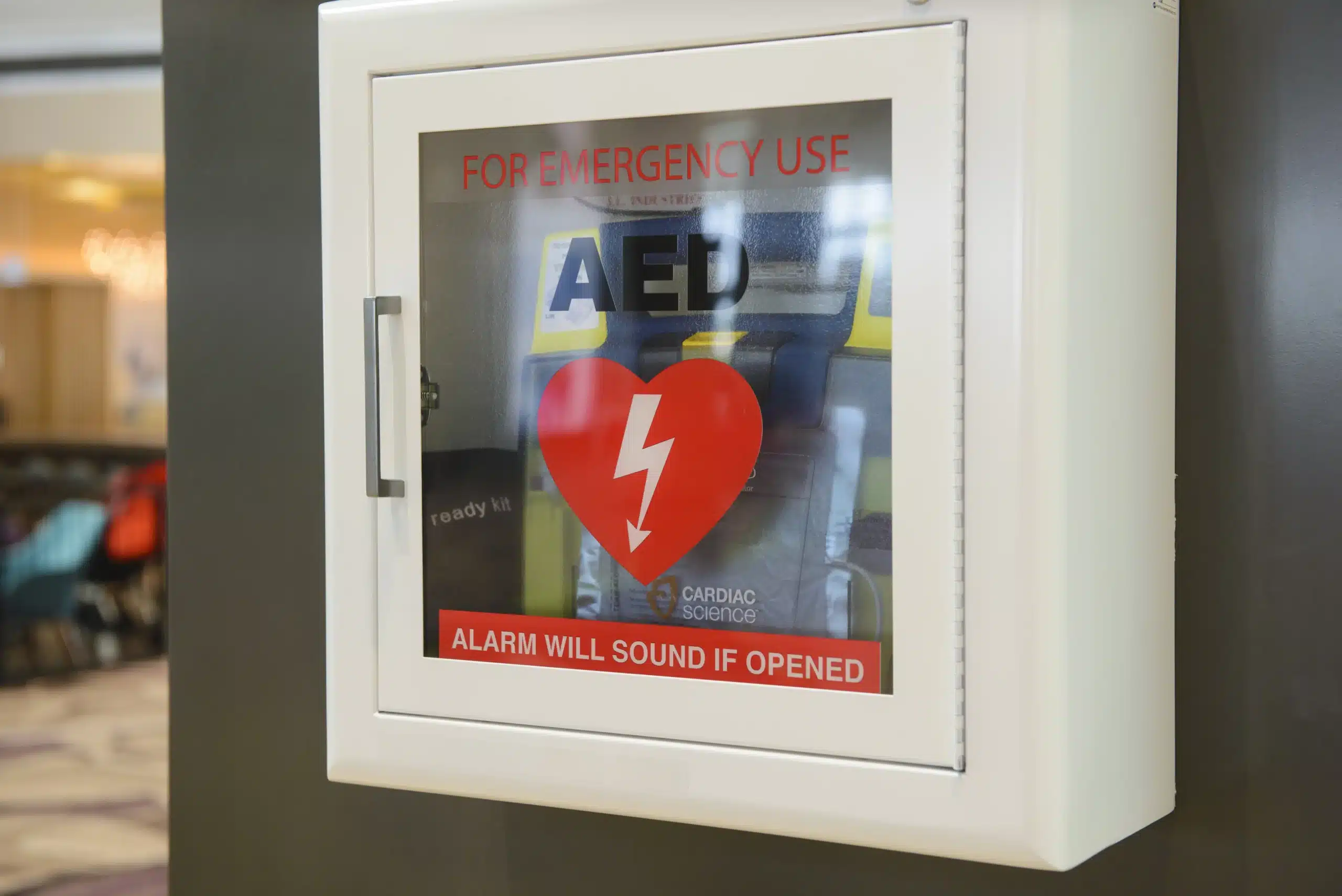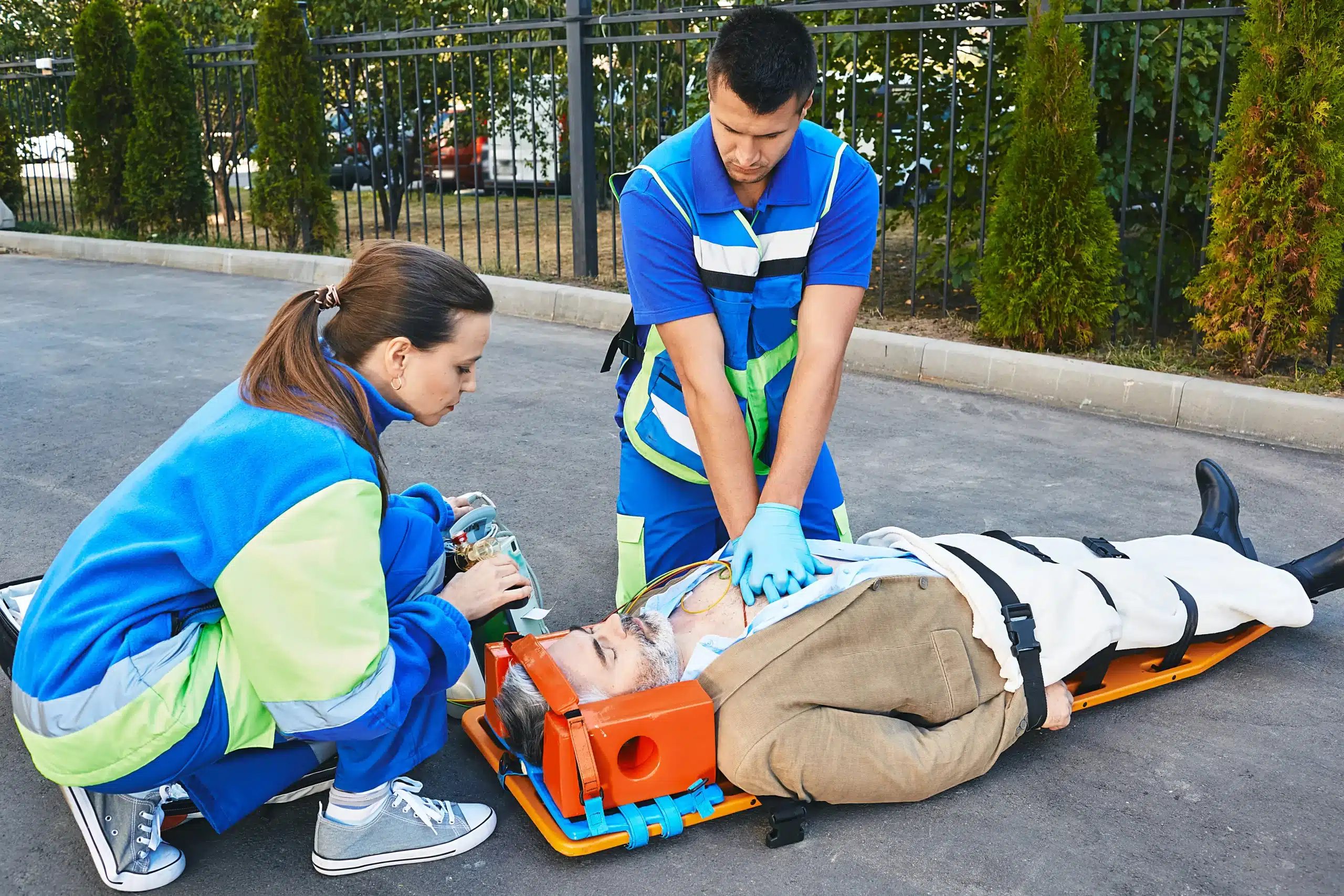Working with children is a rewarding experience, but it also comes with a unique set of responsibilities. As healthcare providers, educators, or caregivers, we need to be prepared for anything, especially medical emergencies. That’s where Pediatric Advanced Life Support (PALS) training comes in. This specialized certification goes beyond basic CPR, equipping you with the advanced skills to handle critical situations involving infants and children. If you’re in Daly City, finding a reputable PALS provider is easier than you think. This article explores the importance of pediatric advanced life support in Daly City, the various certification options available, and how Safety Training Seminars can help you gain the confidence and skills to provide the best possible care for young patients. We’ll cover everything from course structures and costs to renewal requirements and the benefits of choosing an accredited provider.
Key Takeaways
- PALS certification enhances your skills and career: It provides specialized training for managing pediatric emergencies, making you a valuable asset in any healthcare setting.
- Choose a PALS course that fits your lifestyle: Explore various learning formats (online, in-person, or hybrid) and flexible scheduling options to find the best fit for your needs.
- Maintain your PALS skills: Certification is valid for two years. Stay prepared by practicing regularly and taking a renewal course to stay up-to-date with the latest guidelines.
What is Pediatric Advanced Life Support (PALS)?
PALS Explained
Pediatric Advanced Life Support (PALS) certification is essential for healthcare providers working with children. It goes beyond basic life support, equipping professionals to manage pediatric emergencies. Think of it as a specialized toolkit designed for young patients. This training provides the knowledge and practical skills to respond to life-threatening situations in infants and children. PALS certification covers a wide range of critical skills, from recognizing respiratory distress to managing cardiac arrest. For those in the San Mateo, Daly City, and Millbrae area, Safety Training Seminars offers comprehensive PALS courses.
Why Healthcare Providers Need PALS
PALS certification empowers healthcare providers to confidently handle pediatric emergencies. It offers a focused approach to pediatric care not found in general CPR courses. This specialized training helps providers quickly assess a child’s condition, make informed decisions, and administer appropriate interventions. These skills are invaluable in various healthcare settings, from hospitals and clinics to schools and community centers. Whether you’re a doctor, nurse, or paramedic, PALS certification demonstrates your commitment to providing high-quality care for young patients. Learn more about our PALS courses and how they can benefit your career.
Debunking PALS Certification Myths
Several misconceptions surround PALS certification. One myth is that it’s only necessary for hospital staff. In reality, anyone working with children, including school nurses, camp counselors, and childcare providers, can benefit from this training. Another misconception is that PALS is the same as basic life support (BLS). While BLS provides a foundation, PALS builds upon it with advanced techniques specifically for pediatric patients. Finally, some believe that experienced providers don’t need PALS certification. However, regular training is crucial for staying current with the latest guidelines and maintaining life-saving skills. Our PALS courses at Safety Training Seminars address these misconceptions and provide comprehensive training.
Top PALS Providers in Daly City
Finding the right Pediatric Advanced Life Support (PALS) course is crucial for healthcare professionals. Daly City offers several reputable training centers, each with its own strengths. Here’s a closer look at some of the top providers:
Safety Training Seminars
Safety Training Seminars offers AHA-certified PALS courses in Daly City, focusing on flexible scheduling and comprehensive training. They understand that healthcare providers have busy schedules, so they offer various course formats, including evening and weekend classes, as well as blended learning options. Their commitment to a low-price guarantee in San Mateo County ensures high-quality training remains accessible. Hands-on practice is a core part of their curriculum, giving participants the confidence to apply their skills in real-world scenarios.
In-Home CPR
For a more personalized approach, In-Home CPR provides tailored PALS training sessions. They bring the training to you, creating a comfortable and convenient learning environment. This is particularly helpful for busy professionals or families who prefer training in their own homes. In-Home CPR’s flexible scheduling allows clients to choose times that work best for them.
Bay Area CPR
Bay Area CPR offers American Heart Association-certified PALS courses alongside other essential certifications like BLS, ACLS, and First Aid. With classes held daily, they offer ample opportunities to fit training into your schedule. They also provide group discounts, making their courses an excellent option for organizations or teams of healthcare providers training together. For added convenience, Bay Area CPR can also arrange on-site training.
SureFire CPR
SureFire CPR focuses on delivering high-quality PALS training with an emphasis on customer satisfaction. They offer both in-person and online PALS courses, catering to different learning preferences. Experienced instructors provide hands-on training, ensuring participants develop practical skills for responding to pediatric emergencies.
PALS Course Structures and Options
Choosing the right PALS course structure is key to successfully completing your training. Let’s break down the different options available—online, in-person, and hybrid learning—so you can find the best fit for your schedule and learning style.
Online vs. In-Person Training
Online PALS courses offer incredible flexibility, allowing you to learn at your own pace and on your own schedule. You can access training materials anytime, anywhere, making it easier to fit studying into your busy life. This online convenience is especially helpful for refreshing your knowledge and staying up-to-date with the latest protocols. For those who prefer a more structured, hands-on approach, in-person PALS training provides direct interaction with instructors and the opportunity to practice skills in real time. If you learn best through direct interaction and hands-on practice, an in-person course might be a better fit. It’s worth noting that even experienced healthcare providers can benefit from a PALS refresher course to stay sharp and maintain their skills.
Hybrid Learning
For those seeking a balance between online convenience and hands-on practice, hybrid learning offers the best of both worlds. PALS HeartCode combines online instruction with in-person skills practice and testing. This blended learning approach allows you to complete the cognitive portion of the course online at your convenience, then schedule a separate session for hands-on skills training and evaluation. The online portion often includes comprehensive training in pediatric assessment, emergency management, and post-resuscitation care, ensuring you have a solid foundation before practicing your skills. More information on PALS HeartCode can be found on our blog.
Flexible Scheduling
We understand that healthcare professionals have demanding schedules. That’s why we offer flexible scheduling options for our PALS courses, with classes available daily. This makes it easier to fit training into your busy life, whether you prefer weekday, evening, or weekend sessions. We aim to make high-quality PALS training accessible and affordable, providing all the resources you need—including the online course, skills session, and your PALS eCard. We’re committed to helping you find a schedule that works for you.
PALS Certification: Cost vs. Value
Getting PALS certified is an investment in your career and the safety of young patients. But how much does PALS certification cost, and what value does it bring? Let’s break down the costs and benefits to help you understand the return on your investment.
Initial Certification Costs
The initial cost of your PALS certification typically falls between $205 and $255. This covers the course materials, instruction, and the certification exam. While it might seem like a significant upfront cost, consider it the foundation for specialized skills that can make a real difference in pediatric emergencies. For more information on PALS course pricing, visit our PALS page.
Renewal Costs
Renewing your PALS certification is generally less expensive than the initial certification, usually around $155 to $160. This makes staying current with the latest guidelines and maintaining your qualifications more manageable. Explore our renewal options to keep your certification active.
Discounts and Deals
Looking to save even more? Keep an eye out for discounts. Organizations like the American Red Cross sometimes offer discounts on training materials. For example, you might find deals like 10% off training supplies, books, and emergency preparedness items. At Safety Training Seminars, we also offer a low price guarantee, so you can be confident you’re getting the best value.
Career Benefits
The value of PALS certification extends far beyond the initial cost. It’s a crucial requirement for many healthcare roles involving pediatric care, making it essential for career advancement. Holding a PALS certification can open doors to more job opportunities and can even give you a competitive edge. It signals to potential employers that you have the specialized training and commitment to handle pediatric emergencies effectively. PALS certification demonstrates your dedication to providing high-quality care. Plus, knowing you have the skills to potentially save a child’s life is invaluable.
PALS Certification: Prerequisites and Requirements
Before you jump into a Pediatric Advanced Life Support (PALS) course, it’s helpful to understand the prerequisites. Knowing the requirements upfront streamlines the certification process.
BLS Certification
A current Basic Life Support (BLS) certification is the most important prerequisite for PALS certification. This makes sense, as PALS builds upon the foundational skills taught in BLS. A solid grasp of basic life support techniques is essential for managing pediatric emergencies. You can find more information on BLS certification from the American Red Cross. Make sure your BLS certification is current before enrolling in a PALS course. At Safety Training Seminars, we offer BLS certification courses in San Mateo and surrounding areas.
Other Qualifications
While prior experience in healthcare is helpful, it isn’t a formal prerequisite for PALS certification. Some experienced healthcare providers might assume their on-the-job experience is sufficient. However, PALS training focuses specifically on pediatric emergencies and provides standardized best practices. Even seasoned professionals benefit from the specialized knowledge and skill enhancement a PALS course offers. It’s all about staying current and providing the best possible care.
Tech Requirements for Online Courses
If you’re considering an online PALS course, ensure you have the right tech setup. A reliable internet connection is crucial for a smooth learning experience. You’ll also need a computer or tablet with a camera and microphone for any interactive components or assessments. Check our guide to online PALS classes in Daly City for more details. Having the proper equipment ensures you can fully engage with the course material.
What Happens in a PALS Course?
A PALS course isn’t just about memorizing facts—it’s about building the skills and confidence to handle pediatric emergencies. Here’s a glimpse of what you can expect:
Core Curriculum
The core curriculum of a PALS course focuses on a systematic approach to pediatric assessment, basic life support, and PALS treatment algorithms. You’ll learn to recognize and respond to respiratory distress, shock, and cardiopulmonary arrest in infants and children. The course emphasizes the importance of high-performance team dynamics and high-quality individual skills to improve patient outcomes.
Skills Assessment
Throughout the PALS course, your skills will be assessed through various methods. Expect hands-on practice and evaluation of essential skills like airway management, intravenous (IV) and intraosseous (IO) access, and medication administration. Many courses incorporate online training components covering pediatric assessment and emergency management. This blended learning approach ensures a comprehensive understanding of the material.
Scenario-Based Training
PALS courses use realistic, scenario-based training to reinforce key concepts. These simulations mimic real-life pediatric emergencies, allowing you to apply your knowledge and skills in a safe environment. Working through these scenarios builds confidence and improves decision-making abilities under pressure. The use of videos and simulated pediatric emergencies helps solidify the systematic approach to pediatric assessment and treatment.
Teamwork and Communication
Effective teamwork and communication are crucial in pediatric emergencies. PALS training emphasizes the importance of clear communication, defined roles, and coordinated efforts within a resuscitation team. You’ll learn how to work effectively with other healthcare providers to provide optimal care. While basic CPR training is valuable, PALS certification provides a more specialized skill set for pediatric emergencies, equipping you with the advanced knowledge and techniques necessary to manage these critical situations.
PALS Certification: Validity and Renewal
Two-Year Certification
PALS certification is valid for two years. This timeframe ensures that healthcare providers regularly refresh their knowledge and skills, keeping them sharp and up-to-date with the latest advancements in pediatric advanced life support. Knowing your certification’s expiration date is crucial for maintaining your credentials and providing the best possible care.
Renewal Requirements
PALS certification typically needs to be renewed every two years. Renewal involves completing a PALS renewal course that covers the latest guidelines and practices. This ensures healthcare providers maintain current knowledge and skills. Check with your certifying organization, such as the American Heart Association or the American Red Cross, for specific renewal requirements. Safety Training Seminars offers convenient PALS renewal courses to help you stay current.
Maintaining Skills
Regular practice is essential for maintaining proficiency in pediatric advanced life support techniques. Even after completing your PALS certification, consider participating in refresher courses or mock scenarios to keep your skills honed. Hands-on practice and scenario-based training will allow you to refine your skills and build confidence in pediatric emergency situations. This ongoing practice can make a significant difference in your ability to respond effectively in real-world emergencies.
Staying Current with Guidelines
Medical guidelines and best practices are constantly evolving. Staying current with these changes is vital for providing effective pediatric advanced life support. The AHA’s PALS Course is regularly updated to reflect new science in the AHA Guidelines for CPR and ECC. By staying informed about the latest updates, you can ensure you’re using the most effective techniques and providing the highest standard of care. Regularly reviewing updated materials and attending continuing education courses can help you stay at the forefront of pediatric advanced life support. You can learn more about the updated PALS Course details and curriculum online.
Choose the Right PALS Course in Daly City
Finding the right Pediatric Advanced Life Support (PALS) course in Daly City can feel overwhelming with so many options. But by focusing on a few key factors, you can simplify the process and choose a course that truly works for you.
Factors to Consider
First, consider the course format. Do you prefer hands-on, in-person learning, or does the flexibility of online learning sound more appealing? Think about your schedule and how much time you can dedicate to studying and attending class. Location matters too. Choose a training center that’s conveniently located, like Safety Training Seminars, which is easy to reach for anyone in San Mateo, Daly City, and Millbrae. And of course, compare pricing. Look for providers with a low price guarantee to make sure you’re getting a good value.
Questions for Providers
Once you’ve narrowed down your choices, contact the training providers directly. Ask specific questions about the course content and how it aligns with the latest American Heart Association (AHA) Guidelines. Inquire about class schedules and any flexible scheduling they offer. It’s also wise to ask about the instructors’ experience and qualifications. A knowledgeable, experienced instructor can significantly impact your learning. Finally, clarify what the course fee includes, such as study materials, certification cards, and any continuing education credits. Directly contacting providers gives you valuable insights to make a smart decision.
Accreditation
Accreditation is key when choosing a PALS course. Make sure the course is accredited by a reputable organization like the AHA. AHA-accredited PALS courses follow the latest scientific guidelines for pediatric emergency care, giving you confidence in the quality of the training. This accreditation is often required for healthcare professionals. Choosing an accredited course, like those offered by Safety Training Seminars, ensures your certification is widely recognized and accepted.
Prepare for Your PALS Certification
Getting ready for your PALS certification involves more than just showing up. A little prep work goes a long way in building your confidence and preparing you for the course. This section covers resources, study tips, and ongoing support to help you succeed.
Study Materials and Resources
The PALS Provider Course teaches healthcare providers to recognize and intervene in pediatric emergencies like respiratory issues, shock, and cardiopulmonary arrest. High-performance team dynamics and top-notch individual skills are key components of the training. To get a head start, explore online PALS certification courses. Many offer step-by-step video demonstrations, practice tests, and self-evaluation tools you can access anytime. These resources can supplement your in-person training and help solidify your understanding of the material.
Tips for Success
Want to increase your chances of acing the PALS certification? Watch any required online videos before your in-person skills test. This will not only improve your comprehension but also make the most of your classroom time. Also, consider your learning style and schedule when choosing a PALS program. If you opt for an online course, ensure you have a reliable internet connection and a device that meets the program requirements. These small steps can significantly improve your overall learning experience.
Post-Certification Support
Your journey doesn’t end with your initial certification. PALS certification is typically valid for two years. To maintain your skills and stay current with the latest guidelines, you’ll need to recertify. Many training centers, like Heart Start CPR, offer recertification courses, along with other CPR, AED, and First Aid training. Keeping your PALS certification current ensures you’re always prepared to provide the best possible care. Remember, consistent practice and ongoing learning are crucial for maintaining proficiency in pediatric advanced life support. You can find more information on PALS Certification online.
Safety Training Seminars: Your Top PALS Provider
Looking for a reliable provider for your Pediatric Advanced Life Support (PALS) certification? Safety Training Seminars offers high-quality, American Heart Association (AHA)-certified courses in Daly City, convenient for those also in San Mateo and Millbrae. They provide a comprehensive learning experience that equips healthcare providers with the skills to respond effectively to pediatric emergencies.
AHA Certification
Safety Training Seminars is a certified training center for AHA courses. This means their PALS certification meets the highest standards and is widely recognized by healthcare facilities. Earning your PALS certification through Safety Training Seminars ensures your credentials will be accepted nationwide, giving you the flexibility to pursue job opportunities wherever you choose.
Daily Classes & Flexibility
Juggling work and life? Safety Training Seminars understands. They offer PALS classes seven days a week, from 8 am to 10 pm, accommodating various schedules. This flexibility makes it easier to fit the training into your busy life.
On-Site Training
Need training for a larger group or prefer the convenience of learning at your own facility? Safety Training Seminars offers on-site PALS training, bringing the classroom to you. This option is particularly beneficial for hospitals, clinics, and other healthcare organizations in the San Mateo area. It streamlines the training process, allowing your team to learn together in a familiar environment.
Group Discounts & Low Price Guarantee
Safety Training Seminars offers a low-price guarantee in San Mateo County and provides group discounts, making their high-quality training both accessible and affordable. They believe that cost shouldn’t prevent healthcare providers from acquiring these essential lifesaving skills.
Experienced Instructors & Quality Training
Beyond simply meeting certification requirements, Safety Training Seminars prioritizes quality instruction. Their instructors are experienced healthcare professionals dedicated to providing engaging and practical training. They create a supportive learning environment where you can confidently develop and refine your PALS skills.
Related Articles
- Pediatric Advanced Life Support (PALS) Training in Millbrae – San Mateo CPR Classes
- PALS HeartCode in Daly City: Your Complete Guide – San Mateo CPR Classes
- HeartCode PALS San Mateo: Your Guide to Certification – San Mateo CPR Classes
- Online PALS Classes in San Mateo: Your Guide – San Mateo CPR Classes
- Online PALS Classes in Daly City: Your Guide – San Mateo CPR Classes
Frequently Asked Questions
Why is PALS certification important?
PALS certification provides healthcare professionals with the advanced skills and knowledge to effectively manage pediatric emergencies. It goes beyond basic life support, focusing on the specific needs of infants and children. This specialized training can significantly improve outcomes in life-threatening situations.
What’s the difference between PALS and BLS?
While BLS provides a foundation in basic life support, PALS builds upon those skills with advanced techniques specifically designed for pediatric patients. PALS addresses the unique physiological differences between children and adults, equipping providers with a more specialized approach to pediatric care.
How do I choose the right PALS course format?
Consider your learning style and schedule. Online courses offer flexibility, while in-person classes provide hands-on practice and direct interaction with instructors. Hybrid courses combine online learning with in-person skills sessions, offering a balanced approach.
How much does PALS certification cost, and how long is it valid?
PALS certification typically costs between $205 and $255 for initial certification and around $155 to $160 for renewal. Certification is valid for two years, after which you’ll need to recertify to stay current.
What if I have more questions about PALS certification?
Contact Safety Training Seminars directly. They can answer your specific questions about course content, scheduling, and any other concerns you may have. They’re happy to guide you through the process and help you find the right PALS course to fit your needs.






